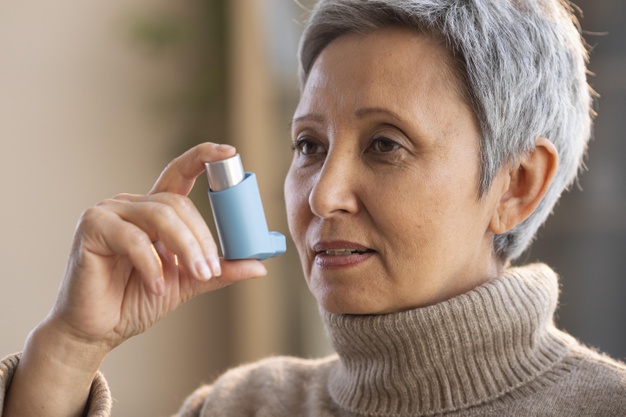
Everything About Asthma
Asthma is a chronic breathing problem due to swelling of the lungs airways. This health condition cannot be cured, but it can be prevented and controlled. If you have asthma, your airways are super sensitive, or “twitchy”, and you may react to many things. These things are called triggers.
Common Triggers of Asthma
- Common allergens for asthma are molds, house dust mites, pollen, animal dander, and cockroach droppings. Your doctor can help you identify what you are allergic to and recommend ways to avoid exposure to your triggers.
- Tobacco smoke often aggravates asthma. Your asthma problem can also trigger due to air pollution, strong odors, or fumes.
- Many asthma patients experience asthma symptoms while exercising. This is called exercise-induced bronchoconstriction (EIB).
- There are some medications such as aspirin or other non-steroidal anti-inflammatory drugs (NSAIDs) such as ibuprofen, and beta-blockers can cause or worsen asthma symptoms.
- Emotional anxiety and stress may also lead to an asthma attack.
- Acid reflux, with or without heartburn.
- Viral and bacterial infections such as the common cold and sinusitis.
- Exposure to cold, dry air or weather changes.
Signs and Symptoms of Asthma
Not all people with asthma have the same symptoms, however, the most common symptoms are:
- Wheezing
- Chronic cough
- Shortness of breath, chest “tightness”
- Chronic cough or a cough that happens during the night or after exercise
- When you have a cold, it lasts for more than 10 days, and goes into your chest
The symptoms of asthma may also vary from one asthma attack to the next. The symptoms can be mild during one attack and severe during the next attack.
You may prevent an asthma attack or prevent one from getting worse, if you can recognize early warning signs. Early warning signs of asthma include:
- Frequent cough, especially at night
- Losing your breath easily or shortness of breath
- Feeling very tired or weak when exercising
- Wheezing or coughing after exercise
- Feeling moody, upset, or grouchy
- Runny nose, sore throat, cough, nasal congestion, and headache
- Trouble sleeping
If you experience early symptoms of asthma, consult with your doctor to get proper treatment.
When Should Someone Seek Medical Care for Asthma?
If you think you may have asthma, make an appointment with your health-care provider to get the right treatment. Some of the signs pointing to asthma are:
- Difficulty in breathing,
- wheezing,
- pain in chest,
- spasmodic cough
If you have asthma, consult with your doctor and ask him to create an action plan that you can follow during an emergency. This plan should include instructions such as ‘what to do when an asthma attack occurs’, ‘which medicine to take’, and ‘when to call the health-care provider’ etc.
General Instructions
Here are some general instructions that you can follow when you experience early symptoms of asthma attack:
- Take two puffs of beta-agonist with one minute gap between both puffs. If you don’t feel better with it, take an additional puff every five minutes. Call your healthcare provider if you don’t feel better after eight puffs.
- Call your healthcare provider if you have an asthma attack when you are already taking your medications for asthma and your inhaler treatments are not lasting four hours.
Although, many treatments are available to treat asthma, many people die due to an asthma attack every year. Rush to the nearest hospital if you’re having an asthma attack and are unable to reach your doctor. If you are alone, call your friends, family, or 911 immediately for emergency medical transport. Do not drive yourself to the hospital.


